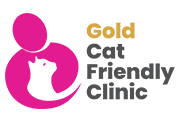At Eastcott Vets, we prioritise the dental health of your felines. Just like humans, cats can experience a range of dental issues that can impact their overall well-being. From tartar buildup to gum disease, dental problems can cause discomfort and affect your cat's quality of life. That's why we're dedicated to providing comprehensive cat dental care to ensure your furry friend maintains healthy teeth and gums.
With our expert team and specialised treatments, you can trust us to keep your cat's smile bright and their purrs content. Discover the difference quality cat dental care can make for your cat and get in touch with Eastcott Vets today!

The Importance Of Cat Dental Care
At Eastcott Vets, we understand the crucial role that cat dental care plays in maintaining the health and happiness of your feline companions. The consequences of dental issues for cats extend far beyond their mouths. Neglecting dental hygiene can lead to infections, tooth loss, and systemic disorders if not addressed. Bacteria stemming from dental problems can enter the bloodstream, causing systemic infections that impact essential organs such as the liver, kidneys, and heart.
To prevent such complications, regular cat dental care is essential, including professional cleanings and at-home maintenance. Prioritising your cat's dental health not only promotes their oral well-being but also enhances their overall quality of life. By ensuring proper cat dental care you protect them from discomfort and potential dangers associated with dental issues. A joyful smile mirrors a healthy pet, and investing in your cat's dental care can contribute to a longer, more fulfilling life for your beloved feline companion.
Different Types of Cat Dental Issues
Cats can experience various dental issues, including:
- Accumulation of bacteria on the teeth, leading to the formation of yellowish-brown deposits.
- Inflammation of the gums, often caused by plaque and tartar buildup, resulting in redness, swelling, and bleeding. This is called Gingivitis.
- Advanced stage of gingivitis where the infection spreads to the tissues and bones supporting the teeth, potentially leading to tooth loss.
- Tooth decay caused by bacterial action on the tooth enamel, resulting in cavities or dental caries.
- Progressive destruction of tooth structure, often seen in older cats, leading to tooth loss and discomfort.
- Feline Stomatitis is the severe inflammation of the oral mucosa, causing pain and difficulty eating.
- Abnormal growths in the mouth, which may be benign or malignant, requiring veterinary intervention.
- Malocclusion is the misalignment of the teeth or jaw, leading to bite problems and potential discomfort.
- Poor cat dental care can lead to abscesses that are pus-filled pockets caused by a bacterial infection in the gums or tooth roots, requiring prompt veterinary treatment.
- Broken or fractured teeth resulting from trauma or chewing on hard objects, leading to pain and potential infection.
What should I feed my cat to avoid dental issues?
Feeding your cat a diet specifically formulated to promote cat dental care and health can help prevent dental issues. Look for cat foods labelled as "dental care" or "oral health" that are designed to reduce plaque and tartar buildup. These foods often contain ingredients that help scrub teeth as your cat chews, or they may have a special texture that helps clean teeth. Additionally, providing dental treats or toys designed to promote chewing can also help maintain your cat's dental health. Remember to consult with experts at Eastcott Vets to ensure you're feeding your cat a balanced diet that meets their nutritional needs and supports their oral health.
How To Keep Your Cats Teeth Clean
Keeping your cat's teeth clean is essential for their overall health as well as cat dental care. Here are some tips to help maintain your cat's dental hygiene:
Regular Brushing: Get your cat accustomed to having their teeth brushed from a young age. Use a cat-specific toothbrush and toothpaste to gently brush their teeth two to three times a week.
Dental Treats and Toys: Offer dental treats or toys designed to promote chewing, which can help reduce plaque and tartar buildup while providing mental stimulation.
Dental Diet: Consider feeding your cat specially formulated dental diets that are designed to help clean teeth as they eat.
Professional Cleanings: Schedule regular dental check-ups with your veterinarian, who can perform professional cleanings and address any dental issues early on.
Monitor Oral Health: Keep an eye out for signs that your cat dental care is deteriorating such as bad breath, swollen gums, or difficulty eating. If you notice any abnormalities, consult your veterinarian promptly.
Set Up Your Cat Dental Care Plan Today!
Cat dental care is crucial for their overall well-being. By incorporating these practices into your daily routine and working closely with the experts at Eastcott Vets, you can contribute to ensuring your cat maintains excellent oral health and a joyful, pain-free smile throughout their life. Contact us or schedule an appointment today.
We also offer dental care for dogs and rabbits. Find out more.







